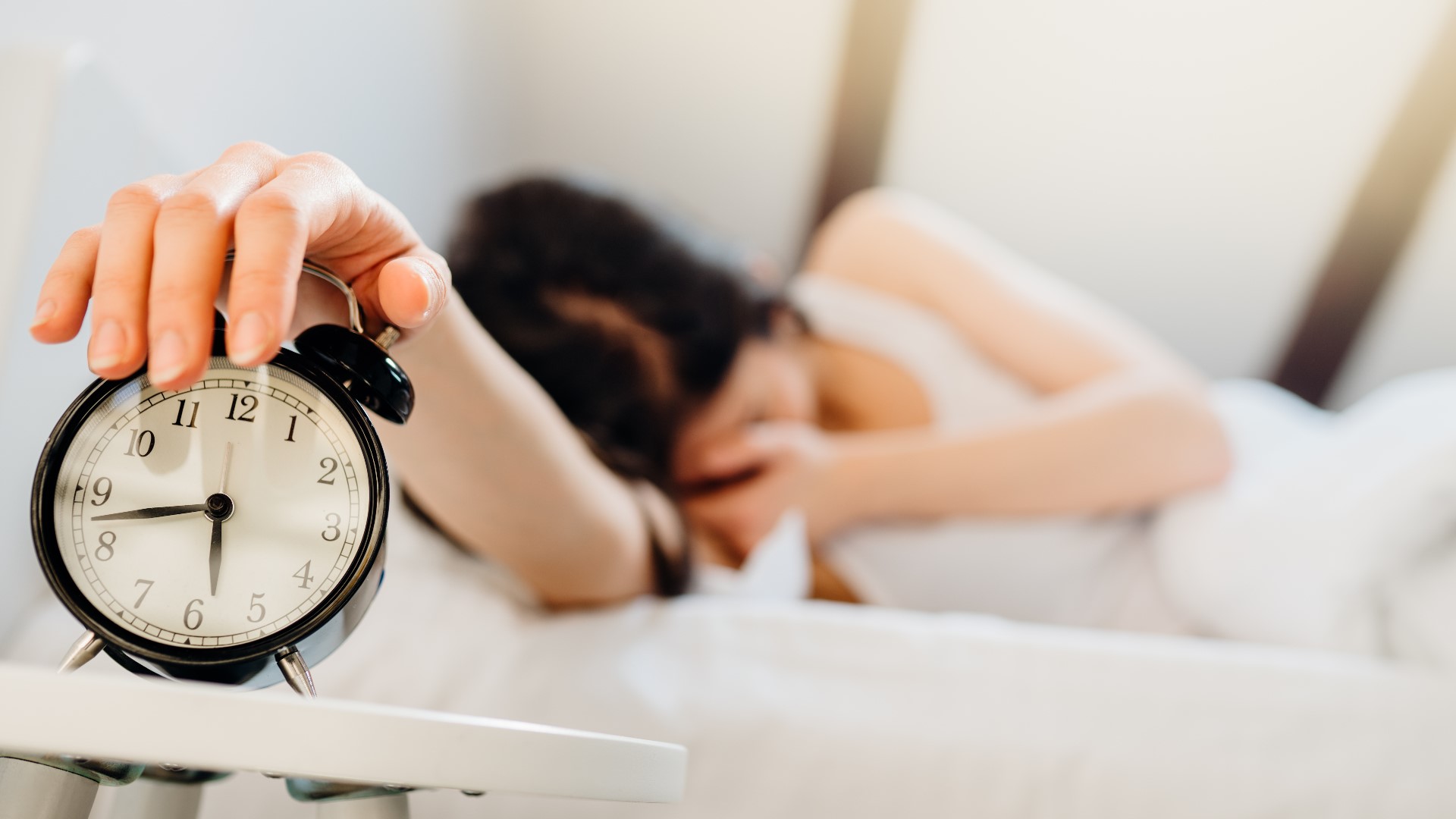COLORADO, USA — An increased risk of heart attack, feeling jet-lagged and even sleep disorders such as narcolepsy are among the effects daylight saving time can have on people.
9Health Expert Dr. Payal Kohli spoke about the health effects of changing our clocks one hour later.
How does Daylight Saving Time affect our sleep?
The fall back transition is usually easier on our bodies than the spring forward transition. So, our bodies have an internal clock called a “circadian rhythm” that is regulated by light and dark and affects the release of a sleep-inducing hormone called melatonin. This is what makes us feel jet-lagged when we travel internationally – disruption of our internal body clock.
When we spring forward, we get an extra hour of light in the afternoon rather than the morning, and an earlier bedtime. This can affect our body's internal clock and make it more difficult to fall asleep on time and wake up in the morning because our body's “internal clock” was used to seeing light when we woke up and going to sleep at a later bedtime. That’s why we can feel tired, groggy, irritable or “jet-lagged” for a few days after the clock changes in the spring until your circadian rhythm re-adjusts.
Some studies have shown not just an effect on sleep, but the risk of a heart attack could also be higher after the spring transition, and some doctors have advocated for stopping the practice of daylight saving time.
What is narcolepsy?
Narcolepsy is a chronic sleep disorder characterized by excessive daytime sleepiness, recurrent episodes of the irrepressible and sudden need to sleep, lapsing into sleep or napping occurring on the same day. To meet the criteria for diagnosis, you need episodes at least three times a week over the past three months along with other findings (like loss of muscle tone (cataplexy), chemical deficiency in the brain (hypocretin), or disorders of REM sleep).
The “sleep attacks” can occur while you are working, cooking, driving or even while talking and can last for a few minutes or several minutes. In some narcoleptics, there is a loss of muscle tone (cataplexy) and this can be triggered by strong emotions and can last for a few minutes. Others can have sleep paralysis, which is an inability to move or speak while falling asleep, or during waking, and this can be frightening.
Still, others can have hallucinations around the time of sleep. Narcolepsy is estimated to occur in 25-50 per 100,000 people. Despite excessive sleep, many people with narcolepsy feel chronically sleep-deprived “as if they haven’t slept in three days” according to reports by the FDA.
What causes narcolepsy?
In certain types of narcolepsy (especially the patients with cataplexy), there are low levels of the chemical hypocretin, which controls wakefulness and REM sleep. Narcolepsy usually begins between age 10-30 years (although there may be a delay in diagnosis) and the risk of narcolepsy is estimated to be 20-40X higher if you have a family member with narcolepsy.
What are the impacts of narcolepsy on health and life?
As you can imagine, the sudden and unpredictable “sleep attacks” can have a significant impact on interpersonal relationships, social, personal and professional life, increased risk for physical harm/car accidents/kitchen accidents and has even been associated with obesity.
How is narcolepsy treated?
Narcolepsy has no cure and is treated with behavioral changes and medications. Lifestyle changes include good sleep hygiene, following a regular sleep schedule, frequent naps and avoidance of alcohol. Medications are most commonly stimulants (to help with daytime sleepiness) and anti-depressants to regulate REM sleep and help with symptoms of cataplexy.
Colorado narcolepsy resources
RELATED: 9Health eTools
> Top stories curated daily just for you! Sign up for the 9NEWSLETTER to get can’t-miss stories, Next and Broncos content, weather and more delivered right to your inbox.
SUGGESTED VIDEOS: Mile High Mornings
MORE WAYS TO GET 9NEWS
Subscribe to our daily 9NEWSLETTER
Download the 9NEWS APP
iTunes: http://on9news.tv/itunes
Google Play: http://on9news.tv/1lWnC5n
HOW TO ADD THE 9NEWS APP TO YOUR STREAMING DEVICE
ROKU: add the channel from the ROKU store or by searching for KUSA.
For both Apple TV and Fire TV, search for "9news" to find the free app to add to your account. Another option for Fire TV is to have the app delivered directly to your Fire TV through Amazon.

